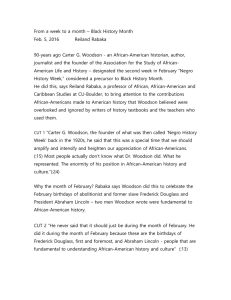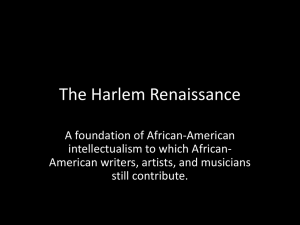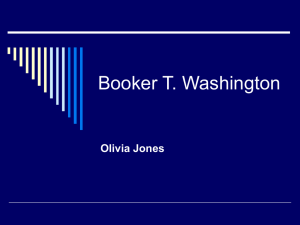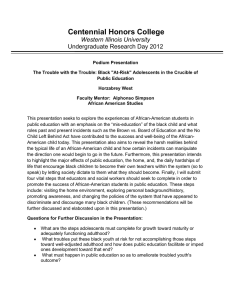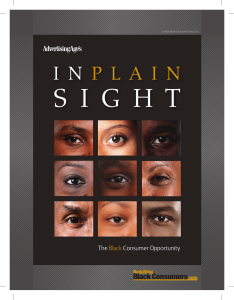Discussing African American History Month Feb. 1, 2013 Reiland Rabaka
advertisement
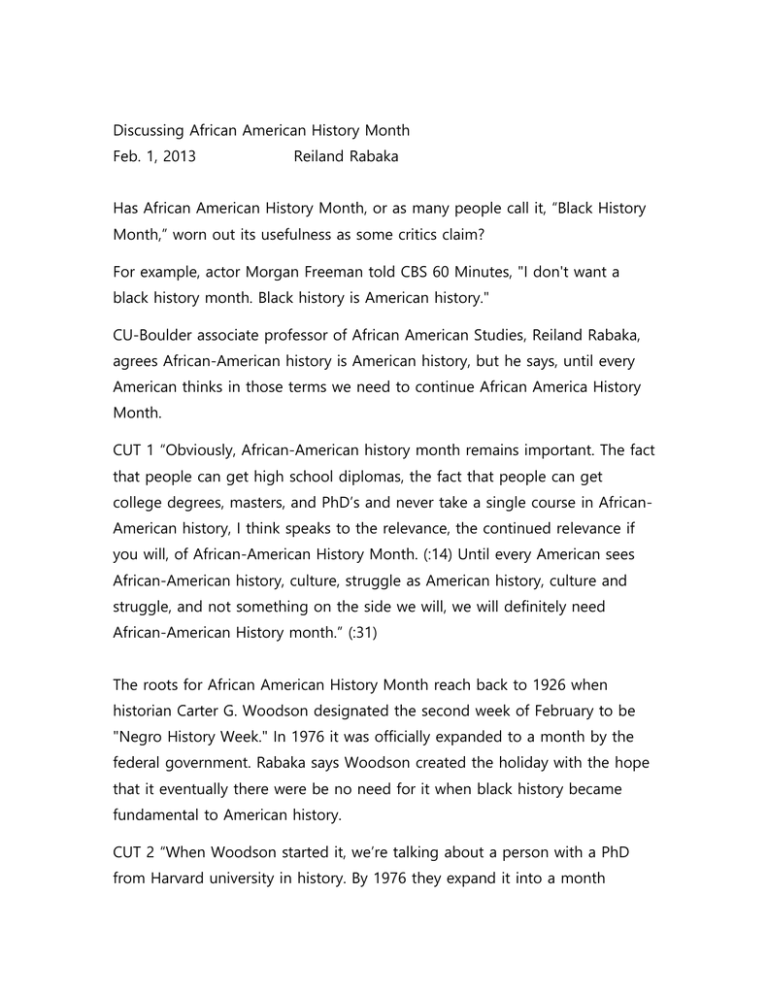
Discussing African American History Month Feb. 1, 2013 Reiland Rabaka Has African American History Month, or as many people call it, “Black History Month,” worn out its usefulness as some critics claim? For example, actor Morgan Freeman told CBS 60 Minutes, "I don't want a black history month. Black history is American history." CU-Boulder associate professor of African American Studies, Reiland Rabaka, agrees African-American history is American history, but he says, until every American thinks in those terms we need to continue African America History Month. CUT 1 “Obviously, African-American history month remains important. The fact that people can get high school diplomas, the fact that people can get college degrees, masters, and PhD’s and never take a single course in AfricanAmerican history, I think speaks to the relevance, the continued relevance if you will, of African-American History Month. (:14) Until every American sees African-American history, culture, struggle as American history, culture and struggle, and not something on the side we will, we will definitely need African-American History month.” (:31) The roots for African American History Month reach back to 1926 when historian Carter G. Woodson designated the second week of February to be "Negro History Week." In 1976 it was officially expanded to a month by the federal government. Rabaka says Woodson created the holiday with the hope that it eventually there were be no need for it when black history became fundamental to American history. CUT 2 “When Woodson started it, we’re talking about a person with a PhD from Harvard university in history. By 1976 they expand it into a month because literally African-Americans have created, made so much history, that it can’t be contained, obviously, in a week. (:18) All of America is better right now because of the contributions of African-Americans. And to not know those contributions it’s actually quite insulting. Because you have people who talk about slavery or they talk about the slave trade or they talk about Jim Crow and they cannot go into depth the way they can when we say George Washington or Thomas Jefferson.” (:35) As an African-American, Rabaka isn’t disappointed that African-American history isn’t mainstream. He understands that social movements take time and inspiration. CUT 3 “I cannot name for you a single social movement, whether we talk about the Russian Revolution, the French Revolution, the American Revolution, Spanish Revolution, you name it, I can’t name for you a single movement that has achieved every last one of its goals.” (:15) Rabaka says what gives him hope is how people in the face of adversity delivered inspiration and created social movements that worked. CUT 4 “When Patrick Henry says, ‘Give me liberty or give me death,’ he inspired some people to rise up against some oppressive conditions. Martin Luther King Junior, when he says, ‘I have a dream,’ he never got a chance to see Obama in office, he never got a chance to see his children grow up, but he inspired millions and millions and millions of Americans. (:21)I think that the architects of American Democracy, I think that when they were writing up the declaration of independence, I guarantee you there were people saying this is not realistic - ya’ll can’t do this. Well here we are now ya’ll. We’re doing it, aren’t we?” (:35) -CU-
